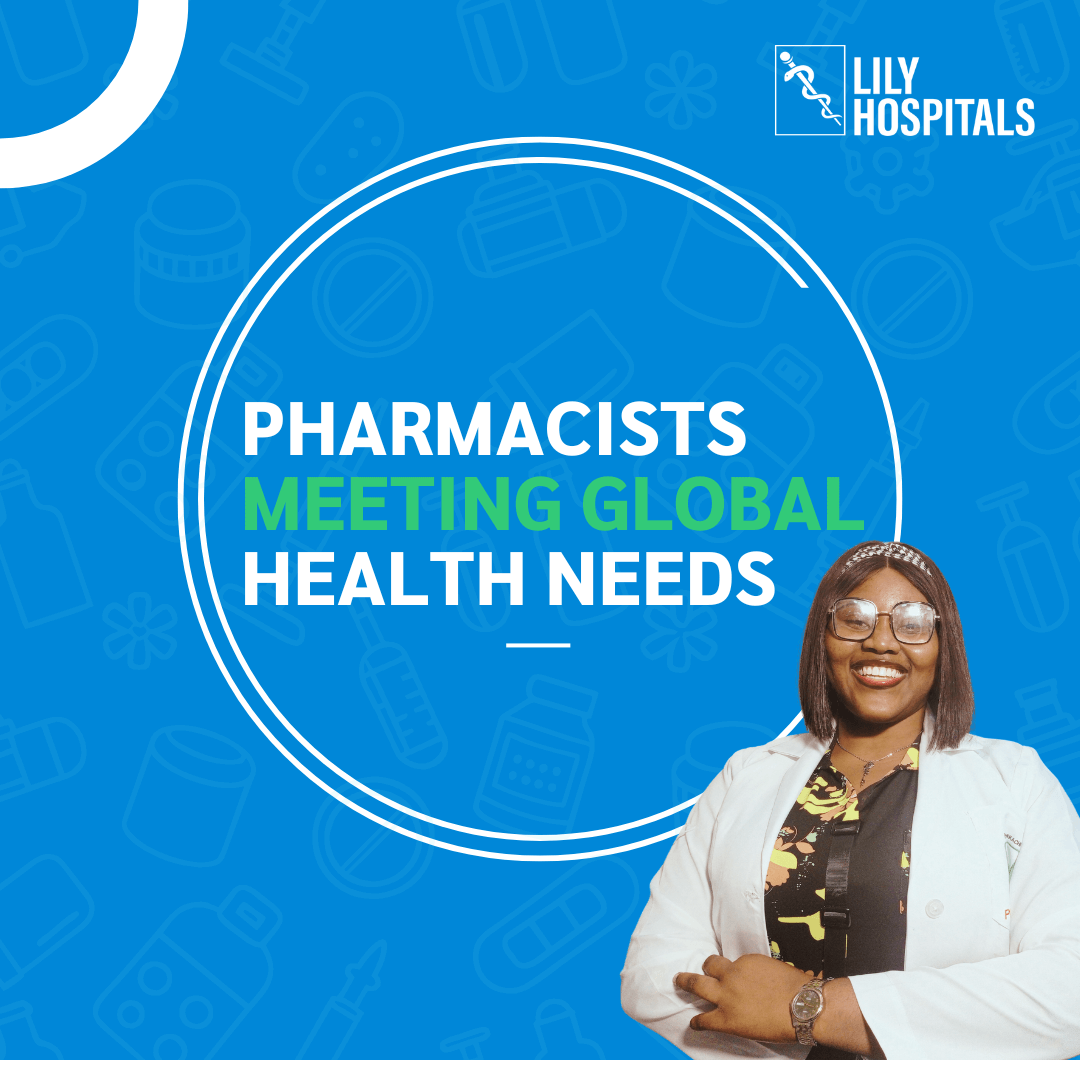
As pharmacists, we play a crucial role in addressing global health needs, and our responsibilities have expanded far beyond traditional tasks like dispensing medications and providing basic advice. Today, we are at the forefront of healthcare, contributing significantly to patient well-being and community health, particularly in Africa and Nigeria, where access to healthcare can be limited. Our role is essential in bridging gaps, and ensuring that individuals across sub-Saharan Africa have access to the healthcare they need.
Globally, we are vital to healthcare systems, ensuring access to medications, offering expert guidance, and supporting public health initiatives. Whether in Nigeria, sub-Saharan Africa, or elsewhere, our work is aligned with enhancing patient outcomes and meeting the diverse health challenges faced by our communities. As health issues become increasingly complex, our expertise and adaptability are more important than ever.
Innovation and collaboration are key as we strive to improve healthcare delivery. By embracing new technologies and practices, we continue to evolve, ensuring we meet the changing needs of patients and the broader healthcare landscape.
Key Takeaways
- Pharmacists are essential to global health care.
- They ensure access and guide health initiatives.
- Innovation aids their evolving role.
The Role of Pharmacists in Global Health
Our impact on global health is evident through our involvement in various critical areas like primary healthcare, disease prevention, and medication safety. We are pivotal in improving access to healthcare, managing diseases, and ensuring the efficacy and safety of medications. In regions like Africa, where healthcare infrastructure may be limited, our contributions are particularly critical.
Primary Healthcare Advocacy
As advocates for primary healthcare, we play a vital role in our communities. Often, we are the first point of contact for patients seeking medical advice, making our role crucial in preventing illnesses and managing chronic conditions. In Nigeria and other parts of Africa, where healthcare access can be challenging, we provide invaluable support by educating patients about healthy lifestyle choices and the importance of adhering to treatment plans. Our involvement ensures that more people receive the care they need promptly.
Disease Prevention and Management
In disease prevention and management, our expertise allows us to guide patients in understanding their conditions. We help formulate the most effective treatment regimens, particularly in regions like sub-Saharan Africa, where diseases such as malaria and HIV are prevalent. Our advice on vaccinations, screenings, and health maintenance is integral in reducing the incidence of preventable diseases across the continent.
Medication Management and Safety
Medication management is one of our crucial responsibilities in ensuring patient safety. We verify prescriptions, counsel on dosages, and oversee medication reconciliation, actions that prevent errors and enhance treatment efficacy. In regions where access to quality healthcare is limited, such as parts of Nigeria, our vigilance in managing medications is a lifeline for many communities. We monitor patients’ responses to medications, ensuring they use them correctly and reporting any adverse reactions to enhance safety for future patients.
Capacity Building for Sustainable Healthcare
Capacity building is essential to empower us as pharmacists to address global health challenges. In sub-Saharan Africa, this is especially important, as healthcare systems can struggle with resource shortages. By enhancing our skills and fostering collaborations, we contribute to strengthening health systems across the continent.
Training and Education Programs
Investing in our training and education is crucial for building a proficient pharmacy workforce, particularly in Africa. Continuous professional development helps us stay updated with current practices and technologies, allowing us to improve patient care outcomes and respond effectively to health crises. Programs focusing on
- Clinical pharmacy
- Public health services, and
- Medication management is vital, especially in regions where healthcare delivery is often strained.
Partnerships for Strengthening Healthcare Systems
Collaborative partnerships can significantly enhance healthcare systems in Africa. By establishing networks with international organizations, we can tap into valuable resources and expertise. These partnerships, involving health ministries, NGOs, and educational institutions, aim to provide integrated care and support innovative research. Through these efforts, we help build more resilient health systems, particularly in sub-Saharan Africa, where resources can be limited. Together, these efforts create a more resilient and adaptable health system worldwide.
Pharmaceutical Policy and Advocacy
Pharmaceutical policy and advocacy are crucial in shaping an equitable healthcare landscape. In Africa, we face unique challenges in medication accessibility, and policies that promote the availability of affordable, high-quality medications are essential.
Global Medication Accessibility
Access to medications is a fundamental component of health equity. In sub-Saharan Africa, there is often a significant disparity in medication availability due to economic, logistical, and regulatory challenges.
Public-private partnerships and international collaborations are vital in this context. By focusing on generic drug production and streamlined approval processes helps mitigate these challenges, enhancing the availability of essential medicines in our regions.
Ethical Pharmaceutical Practice
Ethical practices in the pharmaceutical industry are vital for building trust and ensuring safety. In Africa, we must advocate for transparency in drug pricing, marketing, and clinical trials. Regulatory frameworks that uphold ethical standards are essential in maintaining the integrity of healthcare systems and promoting patient well-being.
The focus should be on regulatory frameworks that enforce compliance with ethical norms. Educating healthcare professionals about ethical guidelines and encouraging organizational accountability are crucial. Engaging stakeholders through open communication channels can further support ethical decision-making processes within the industry.
Innovation and Technological Advancements
Technological advancements are transforming pharmacy practice worldwide, and Africa is no exception. Digital health solutions and innovations in pharmacogenomics are paving the way for more efficient and personalized healthcare.
Digital Health and Telepharmacy
The rise of digital health and telepharmacy is reshaping how we provide pharmacy services in Africa. With telepharmacy, we can offer consultations and medication advice remotely, improving access to care in regions where healthcare facilities may be scarce. Digital health innovations enhance the safety and efficiency of pharmaceutical care, helping us manage chronic conditions and monitor patients more effectively.
Pharmacogenomics and Personalized Medicine
Pharmacogenomics is at the forefront of personalized medicine, enabling us to tailor treatments to a patient’s genetic profile. In Africa, where genetic diversity is significant, this approach helps us provide medications that are more effective and have fewer side effects, optimizing therapeutic outcomes and minimizing adverse drug reactions.
This innovation is transforming pharmacy practice, enabling targeted therapies that address individual health needs with greater precision.
Conclusion
As pharmacists, we are meeting global health needs by enhancing access to care, especially in regions like sub-Saharan Africa, where healthcare disparities are most pronounced. Through innovation, advocacy, and collaboration, we are building a stronger, more equitable healthcare system that ensures everyone, regardless of location, can access the medications and care they need.
Frequently Asked Questions
Pharmacists play a vital role in addressing global health needs by contributing to public health objectives, policy development, and tackling health challenges. Their role evolves continually, supported by education strategies tailored to diverse global needs.
How do pharmacists contribute to meeting international public health objectives?
Pharmacists enhance public health by providing access to essential medicines, offering vaccinations, and promoting health education. They ensure medication safety and correct usage, helping to reduce health disparities.
In what ways are pharmacists involved in global health policy development?
Pharmacists participate in health policy development by collaborating with global health organizations, advising on drug-related issues, and developing regulations that ensure safe and effective medication use worldwide.
What are the current global health challenges where pharmacists play a crucial role?
Pharmacists are integral in managing infectious disease outbreaks, addressing medication shortages, and combating non-communicable diseases. Their expertise in pharmaceutical care is crucial in response to global health emergencies.
How is the pharmacists’ role in global health initiatives evolving?
The role is expanding to include tasks like chronic disease management, personalized medicine, and digital health services. They adapt through continuous education and embracing technological advancements.
What educational strategies are in place for pharmacists to address global health issues?
Pharmacists receive training focused on global health issues through specialized courses and international exchange programs. Continuous professional development ensures they remain prepared to meet emerging health challenges.
How do pharmacists adapt to the differing healthcare needs in various countries?
Pharmacists adjust by understanding cultural contexts, language differences, and local health systems. They work closely with local healthcare providers to tailor interventions that meet specific community needs.


